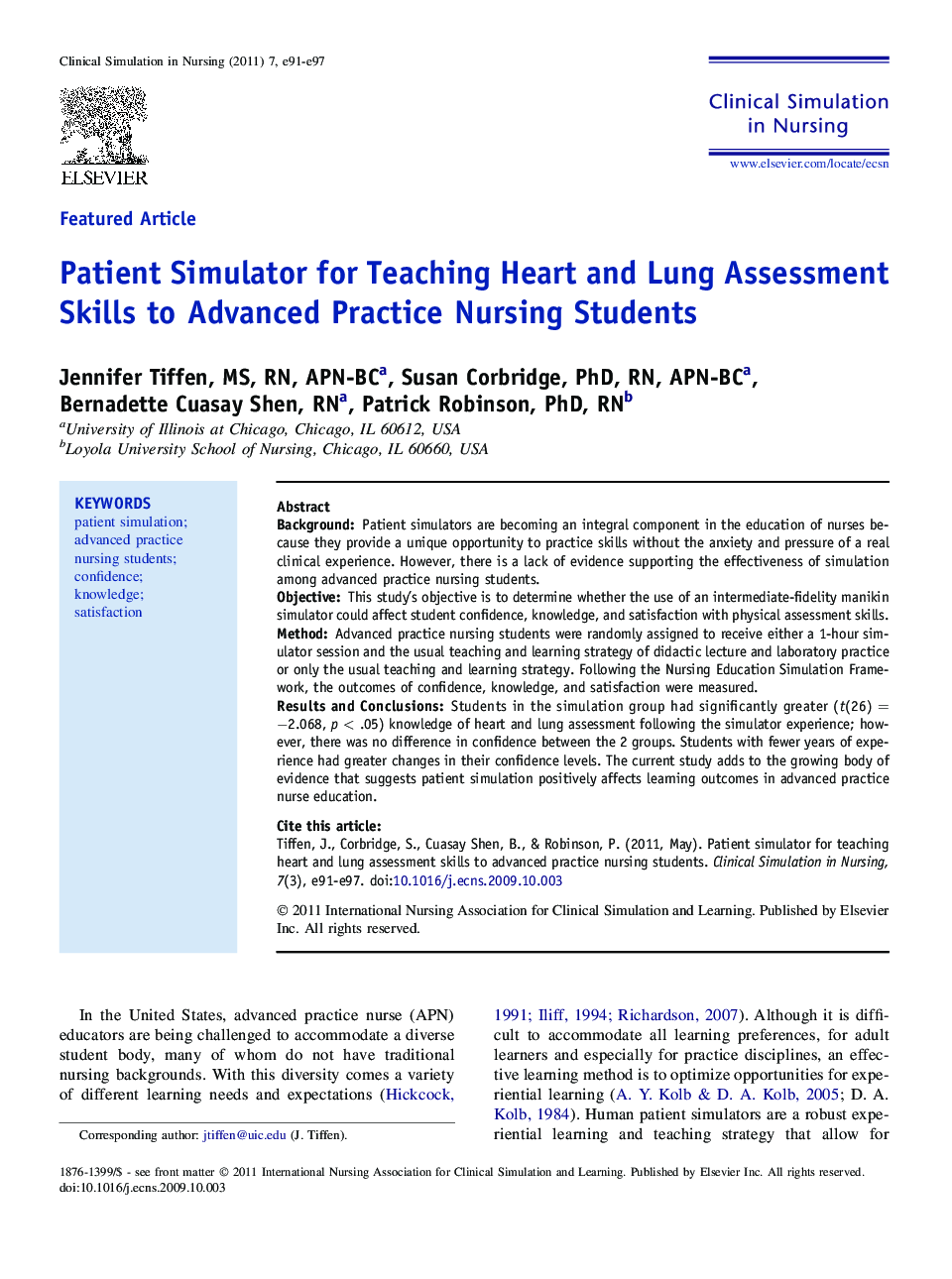| Article ID | Journal | Published Year | Pages | File Type |
|---|---|---|---|---|
| 2645934 | Clinical Simulation in Nursing | 2011 | 7 Pages |
BackgroundPatient simulators are becoming an integral component in the education of nurses because they provide a unique opportunity to practice skills without the anxiety and pressure of a real clinical experience. However, there is a lack of evidence supporting the effectiveness of simulation among advanced practice nursing students.ObjectiveThis study's objective is to determine whether the use of an intermediate-fidelity manikin simulator could affect student confidence, knowledge, and satisfaction with physical assessment skills.MethodAdvanced practice nursing students were randomly assigned to receive either a 1-hour simulator session and the usual teaching and learning strategy of didactic lecture and laboratory practice or only the usual teaching and learning strategy. Following the Nursing Education Simulation Framework, the outcomes of confidence, knowledge, and satisfaction were measured.Results and ConclusionsStudents in the simulation group had significantly greater (t(26) = −2.068, p < .05) knowledge of heart and lung assessment following the simulator experience; however, there was no difference in confidence between the 2 groups. Students with fewer years of experience had greater changes in their confidence levels. The current study adds to the growing body of evidence that suggests patient simulation positively affects learning outcomes in advanced practice nurse education.
